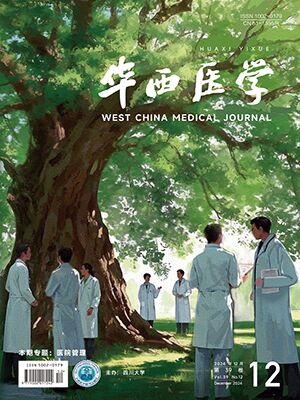| 1. |
Wang M, Earley M, Chen L, et al. Clinical outcomes and bacterial characteristics of carbapenem-resistant Klebsiella pneumoniae complex among patients from different global regions (CRACKLE-2): a prospective, multicentre, cohort study. Lancet Infect Dis, 2022, 22(3): 401-412.
|
| 2. |
Calfee DP. Recent advances in the understanding and management of Klebsiella pneumoniae. F1000Res, 2017, 6: 1760.
|
| 3. |
Bowers JR, Kitchel B, Driebe EM, et al. Genomic analysis of the emergence and rapid global dissemination of the clonal group 258 Klebsiella pneumoniae pandemic. PLoS One, 2015, 10(7): e0133727.
|
| 4. |
CLSI. Performance standards for antimicrobial susceptibility testing. 31sted. CLSI supplement M100. Wayne, PA: Clinical and Laboratory Standards Institute, 2021.
|
| 5. |
Liu C, Liu L, Jin MM, et al. Molecular epidemiology and risk factors of carbapenem-resistant Klebsiella pneumoniae bloodstream infections in Wuhan, China. Curr Med Sci, 2022, 42(1): 68-76.
|
| 6. |
MacKenzie FM, Forbes KJ, Dorai-John T, et al. Emergence of a carbapenem-resistant Klebsiella pneumoniae. Lancet, 1997, 350(9080): 783.
|
| 7. |
曹蕾, 李小月, 罗庆礼, 等. CIM, mCIM 和 MHT 筛选肠杆菌科细菌产碳青霉烯酶的方法评价. 现代检验医学杂志, 2020, 35(1): 67-70.
|
| 8. |
胡付品, 郭燕, 朱德妹, 等. 2019 年 CHINET 三级医院细菌耐药监测. 中国感染与化疗杂志, 2020, 20(3): 233-243.
|
| 9. |
王群. 耐碳青霉烯肺炎克雷伯菌的分子特征研究. 成都: 成都中医药大学, 2019.
|
| 10. |
张欣, 喻华, 黄湘宁, 等. 四川省细菌耐药监测网 2014 年细菌耐药监测数据分析. 中国抗生素杂志, 2016, 41(8): 624-631.
|
| 11. |
黄湘宁, 殷琳, 张欣, 等. 2017 年四川省细菌耐药监测报告. 中国抗生素杂志, 2018, 43(9): 1143-1150.
|
| 12. |
余佳佳, 刘瑛, 俞静, 等. 碳青霉烯类抗菌药物灭活试验筛查产碳青霉烯酶肠杆菌科细菌的效能评价. 检验医学, 2017, 32(7): 628-632.
|
| 13. |
Girlich D, Poirel L, Nordmann P. Value of the modified Hodge test for detection of emerging carbapenemases in Enterobacteriaceae. J Clin Microbiol, 2012, 50(2): 477-479.
|
| 14. |
Seah C, Low DE, Patel SN, et al. Comparative evaluation of a chromogenic agar medium, the modified Hodge test, anda battery of meropenem-inhibitor discs for detection of carbapenemase activity in Enterobacteriaceae. J Clin Microbiol, 2011, 49(5): 1965-1969.
|
| 15. |
Gelmez GA, Can B, Hasdemir U, et al. Evaluation of phenotypic tests for detection of carbapenemases: new modifications with new interpretation. J Infect Chemother, 2021, 27(2): 226-231.
|
| 16. |
Pierce VM, Simner PJ, Lonsway DR, et al. Modified carbapenem inactivation method for phenotypic detection of carbapenemase production among Enterobacteriaceae. J Clin Microbiol, 2017, 55(8): 2321-2333.
|
| 17. |
马玉兰, 宋文杰, 李继红, 等. mCIM 与 eCIM 筛选肠杆菌科细菌碳青霉烯酶的效果评价. 临床检验杂志, 2018, 36(9): 650-654.
|
| 18. |
Sfeir MM, Hayden JA, Fauntleroy KA, et al. EDTA-modified carbapenem inactivation method: a phenotypic method for detecting metallo-β-lactamase-producing Enterobacteriaceae. J Clin Microbiol, 2019, 57(5): e01757-18.
|




